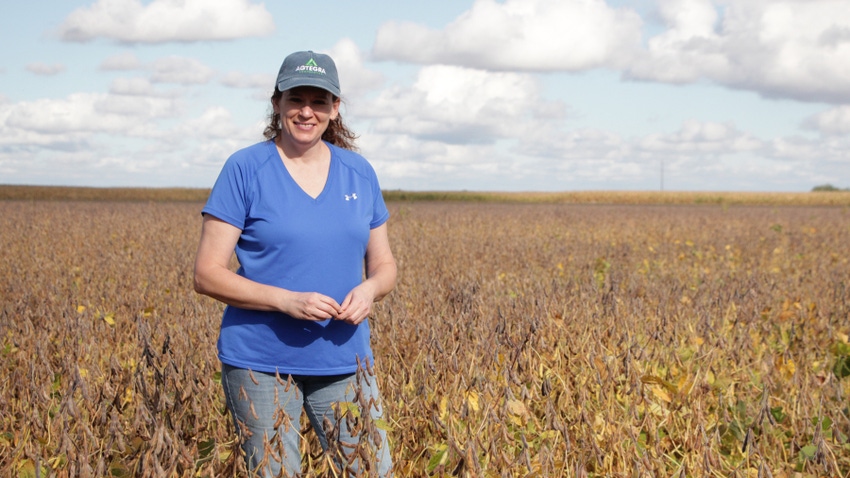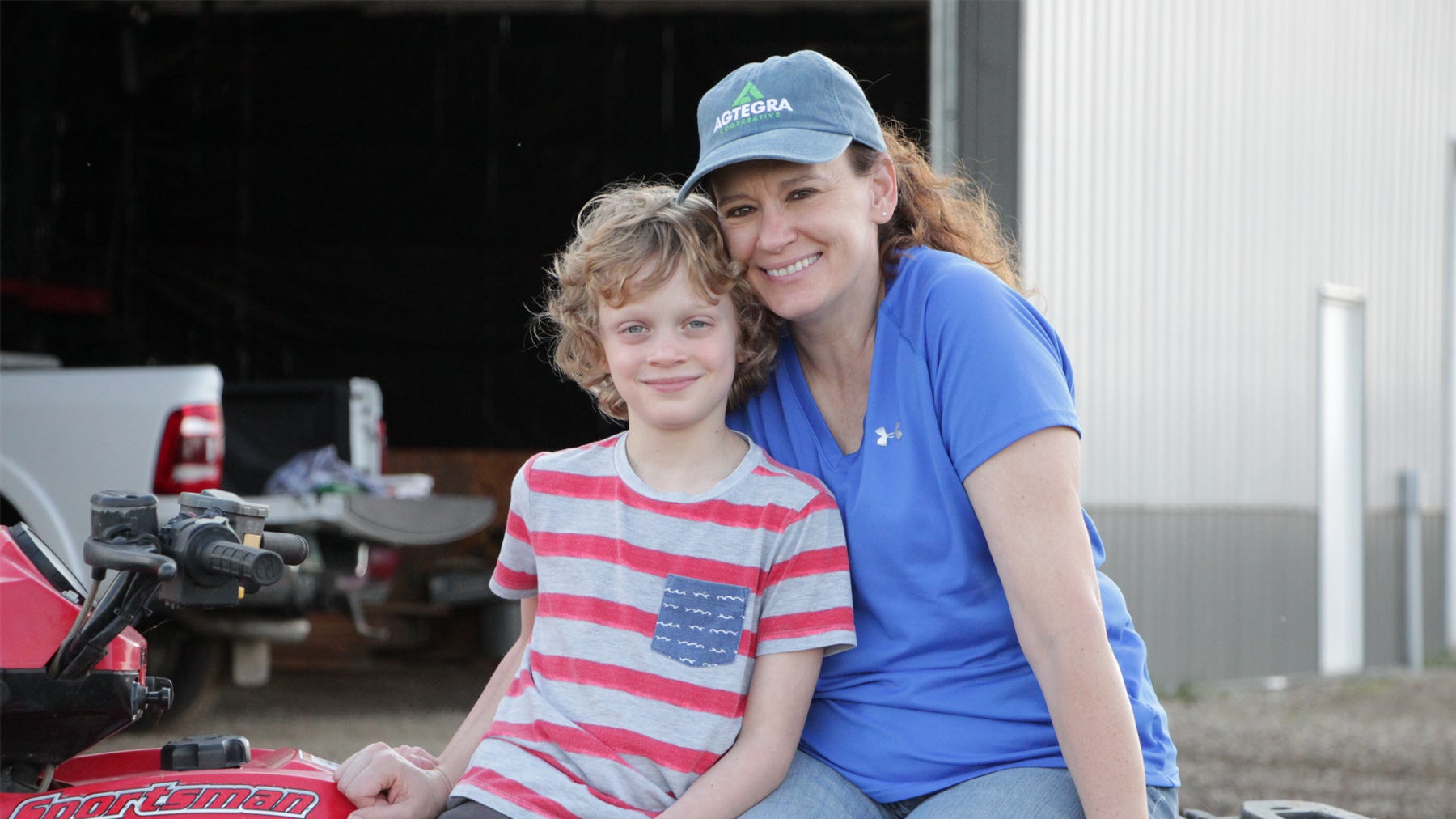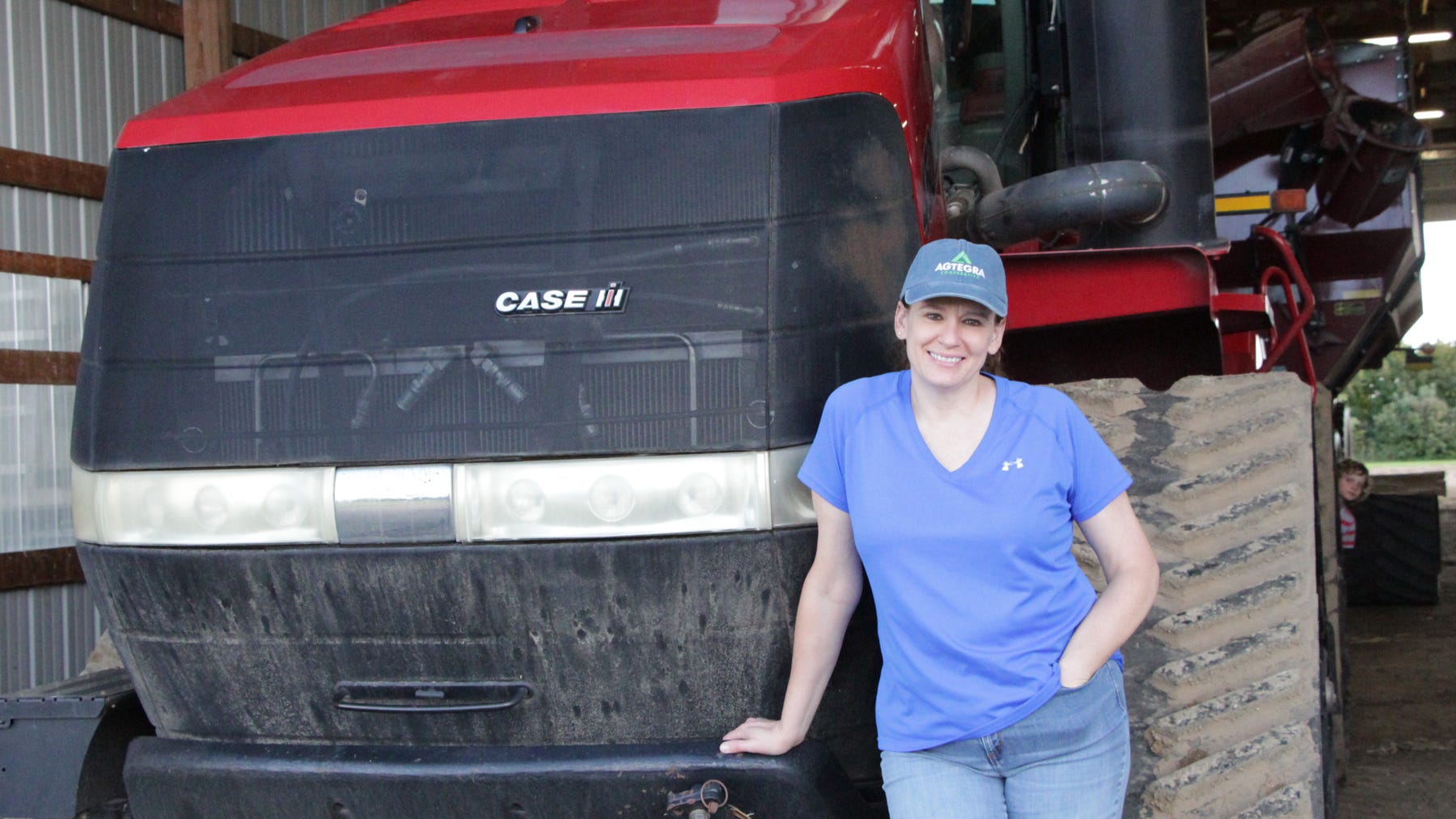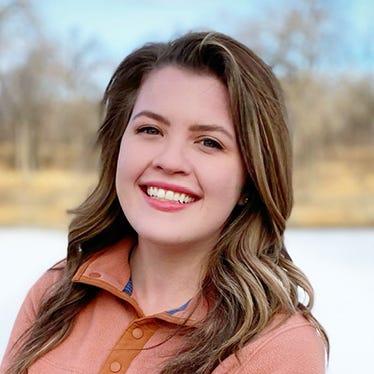
There isn’t much in common with the soybean fields of South Dakota and the military bases across Europe, but still, both places served as home for Heather Beaner, an Air Force veteran and Mellette, S.D., farmer. The journey from growing up on the farm, heading to law school, then to serving as a judge advocate general in the U.S. Air Force is one best told by Beaner herself.
“I never even thought about law school,” she says. “I just knew I was going to go to college.”
At Northern State University in Aberdeen, S.D., an internship set her on a new path. “I had a congressional internship doing constituent work, and I got to know the government side and really enjoyed it, and started thinking about how I wanted to work in government,” Beaner says.
After learning many people working in government had law degrees, her plans were set. Beaner graduated with her undergrad in three years, after completing a double major in political science and speech communication.
“I did two years at Northern, and then transferred to the University of South Dakota for my last year,” she says. “I stayed down at USD for law school — still not sure what I wanted besides some level of public service or government work.”
The popularity of the 1992 movie “A Few Good Men” led her to an interest in serving as a judge advocate general. In a conversation about the movie, Beaner asked her roommate’s boyfriend who was a third-year law student if the JAG job was “real.” He confirmed it was and suggested she talk to the law school career counselor.
“From there, I did an Army JAG internship at Fort Carson in Colorado Springs and ended up applying to the Air Force JAG Corps when I graduated,” she says.
Initial assignment
After graduating from law school in 1998, Beaner played the waiting game with the U.S. Air Force to find her first assignment. “I actually got a law clerk position for one year with the 5th Judicial Circuit state trial court in Aberdeen” in South Dakota, she says. “During that year I was accepted to the Air Force JAG; then, I went on active duty in August of 1999.”
When starting off in the military, service members often have a list of “dream bases” where they hope to be assigned. “I was told, ‘Don’t expect to go overseas on your first mission.’ And none of the bases on the coast were open,” she says. “They’re always trying to fill the Northern tier bases like Minot and Grand Forks,” both in North Dakota. “But I told them I didn’t join the Air Force to move 300 miles north!”
Beaner waited for other locations for her first assignment. Toward the end of her clerkship, she finally got the call offering her a dream base. “When I got the call about Lakenheath, I had to ask where it was at,” she recalls. “I had only looked at stateside bases and this was in England, and I immediately said yes. I didn’t even let the assignment officer get off the phone.”
Not everyone has a penchant for trial work, but in the two years as a prosecutor at her first assignment, Beaner says she loved it. “I had a talent and a real desire for trial work, and so I volunteered to be a defense counsel,” she says. “I had to be endorsed by a judge, so I got the endorsement and was off.”
Beaner’s next bases following Lakenheath included Kunsan in South Korea, Aviano in Italy and a deployment to Kosovo before coming back stateside.
Back in the U.S.
“They told me I had my first three assignments overseas, and that I needed to come back to the states,” Beaner says. “I ended up being what’s called a ‘circuit trial counsel’ based out of San Antonio.”
This position meant she was at a new base each month, up and down the central U.S., serving as the senior prosecutor on felony-level cases. “I was practically a gold member on every airline when I was in that role,�” she recounts.
In 2008, Beaner returned to the farm on leave and met Matt, the man who would later become her husband. This was also the point Beaner started to consider a career change due to her mother’s declining health.
“My mom had undergone a lung transplant, and I wanted to spend time near family,” she says. “I had been offered a dream job in Okinawa, Japan, but I petitioned to stay stateside and instead was assigned to Ellsworth Air Force Base in Rapid City [S.D.] for my last two years of active duty.”
This also gave Beaner a chance to get to know Matt. “We had a long-distance relationship for a year in Texas and two when I was in Rapid City,” she says. “During that time, we were having the discussion about Mom’s health and how it might be time for me to take over the farm.”

NO PLACE LIKE HOME: Beaner says even after her travels across the globe, there’s nowhere she’d rather raise a family than the farm she grew up on near Mellette, S.D. Beaner, husband Matt and son Gabe enjoy spending time on the family farm.
Beaner and her family worked on how the transition home would work. The summer of 2011 was a busy one for her — in July after 12 years of active duty she moved home, and in August, she married Matt. They had their son, Gabe, in 2014.
She served eight more years in the Air Force Reserves and officially retired as a lieutenant colonel in 2019.
Serving on and off farm
“I had the unique and unusual experience of living literally all over the world,” Beaner says. Her passport is full, with stamps from more than 30 countries she’s traveled to or lived in. “During my travels, I easily knew that the place I wanted to raise a family was right back here.”
Back in the 1990s when she was in her undergraduate student, Beaner says who took over a farm was different than it is now. “I was the daughter — daughters just didn’t come back to run the farm,” she says.

EQUIPMENT: During the time she left the farm to attend college, Beaner says “daughters didn’t come home to farm in those days.” Now, she farms full time with husband Matt.
On her return to farm life, Beaner says she missed the structure of the military. “After all those years, I didn’t have a uniform to put on every day,” she says. Instead, she went from having a team to lead to coming home to learn. “I had to build the structure for myself in the farm world.”
“The last time I farmed was in the ’90s, before we had Roundup Ready anything, and we were doing full tillage,” she says. “I came home, and Dad was doing no-till and variable rating, and there was a computer screen in every cab.”
Those first few years, Beaner recalls, were a steep learning curve. “Dad slowly taught me every step in the operation, and I went to every workshop there was just to learn,” she says.
Beaner says she doesn’t regret not having an agriculture degree, as her law degree is useful in running the farm. “My law degree is helpful. I use it a lot for the business side of the farm,” she explains. “Being in the Air Force and being a lawyer gave me a certain skill set that is useful for my main side occupation these days, which is serving on boards.”
Her days of service are now spent as a director with the South Dakota Soybean Research and Promotion Council and on the board of directors of Agtegra Cooperative. “That’s really where the rubber hits the road for me,” she says. “We do a lot of high-level strategic work, whether on the business side with Agtegra, or on the research and promotion side with the soybean checkoff board.”
Beaner also serves on the local school FFA committee and as a substitute teacher.
Now, Beaner and her husband are partners on the farm as well, working as cooperators. “In March of 2021, Matt came home and joined me on the farm. The biggest thing it came down to was running the numbers and making sure the finances worked to support both of us,” she explains. Before that, her husband had worked full time in his own career and helping during peak times on the farm.
Going from learning from her father to teaching her husband the ins and outs of farming took careful navigation. “All of a sudden now I’m the teacher, and it’s much different than the father-daughter relationship. A lot of it was learning how to communicate effectively without sharing too much or too little,” she explains.
Through all of her work on the farm, Beaner says one thought is always top of mind: “God gave me this land to be a good steward and to raise crops. It’s the oldest profession in the world, and I’ve been blessed with this life.
“That’s part of why I am on these boards, the volunteer work helps our rural way of life succeed.”
Read more about:
Farm SuccessionAbout the Author(s)
You May Also Like






